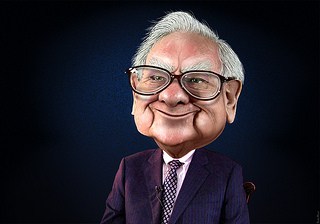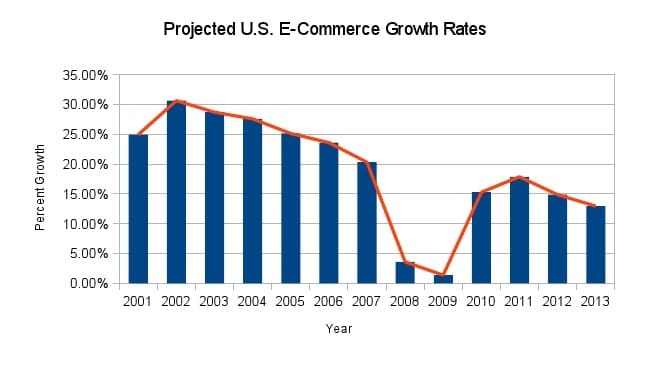Warren Buffett’s 2013 Annual Shareholder Letter: Another Classic

In light of that, I look forward to the annual shareholder letters that Buffett pens to Berkshire Hathaway Inc. (BRK.B) shareholders. It’s a glimpse into not just the business acumen of Buffett, but his down-to-earth investment advice.
So I recently took it upon myself to read through the newest iteration of Warren Buffett’s annual shareholder letter. As always, it’s a classic.
There’s plenty of great material within the pages, and much of it relates to dealings within the Berkshire umbrella, including: subsidiaries’ performance, acquisitions, the long-term performance of the company, a review of common stock positions, and a major lesson on how insurance companies use the float to their advantage.
But since I’m not a shareholder in BRK.B, what I was most excited about was the slew of timeless investment advice that was sure to be included. And this year’s letter was no letdown. It seems Buffett is as wise today as he ever was. The Oracle shows no signs of slowing down.
The broader investment advice starts on page 17, and I’m going to highlight his five major points below:
- “You don’t need to be an expert in order to achieve satisfactory investment returns.”
I couldn’t agree more. I’m no expert, yet I’ve built a portfolio from seed money of $5,000 into what is now in the mid-six-figures.
You don’t need to be an expert to invest intelligently as long as you understand your strengths and weaknesses, and invest accordingly. For instance, I don’t understand all the complexities that exist with technology companies. As such, I purposely keep my exposure there low.
It doesn’t take a genius to take a look around and look at what people are buying and using every single day. I invest in companies like The Coca-Cola Company (KO), The Procter & Gamble Company (PG) and Chevron Corporation (CVX) because I see people every single day drink assorted beverages, brush their teeth, and put gas in their cars. You don’t need to figure out the next trend in biotechnology to have solid long-term returns while receiving a rising income source in the meanwhile.
- “Focus on the future productivity of the asset you are considering.”
Genius in its simplicity and truth.
When I invest in major blue chip companies I do so because I’m anticipating that they’re going to sell more products and/or services in the future than they are today. And I also anticipate that they’re going to share a piece of their expanding profit pie with me as a shareholder.
If you’re unsure as to whether a company is going to be more productive for the foreseeable future than they have been in the recent past then why invest at all? While forecasting future growth rates is exceedingly difficult, it’s fairly easy to look at 10 years of data and extrapolate that out. Furthermore, one would always be wise and prudent to seek a margin of safety after even conservative growth rates.
And when I’m monitoring the performance of companies within my portfolio, or perspective investments, I don’t place too much emphasis on a particular quarterly earnings report. However, if years of suboptimal growth occur with no reasonable explanation then at that time it may be wise to reconsider that investment.
- “If you instead focus on the prospective price change of a contemplated purchase, you are speculating.”
This follows up on the last point. It’s really fantastic advice, and harkens back to Benjamin Graham.
There are quite a few stocks within my own portfolio that have either doubled in price or are close to it: Phillips 66 (PSX), Harris Corporation (HRS), and Raytheon Company (RTN), among others. But I’m not a seller here, because that would be speculating, not investing. I invest in a company because I want to be a long-term partner in the operations and share in future profits. Trading in and out of positions based on price action is nothing but speculation.
Furthermore, I always focus on valuation. Just because a stock doubles or triples has nothing to do with the value of the underlying business. What Mr. Market is willing to sell or pay for a piece of a business doesn’t necessarily have anything to do with what that slice of equity might actually be worth. If a current valuation makes sense, the future growth is still reasonable, and the company continues to treat me right as a shareholder, then why in the world would I sell?
- “Games are won by players who focus on the playing field – not by those whose eyes are glued to the scoreboard. If you can enjoy Saturdays and Sundays without looking at stock prices, give it a try on weekdays.”
This is a follow-up to the previous points. Looking at prices alone and worrying about what Mr. Market is willing to pay for your equity positions will blind you from where the real action is at: the long-term performance of the underlying companies.
You can’t acheive satisfactory returns if you’re constantly trying to guess what a stock’s price will rise or fall to, or continue to trade in and out of stocks based on what the stock market is telling you they’re worth. The only party who can reliably profit from such actions would be the the broker who facilitates the transactions. Spend less time looking at stock prices and more time looking at annual reports. You can thank me later.
- “Forming macro opinions or listening to the macro or market predictions of others is a waste of time.”
Again, I couldn’t agree more. I discussed this point a while ago when I recommended investors ignore the noise. And what is noise? Noise is everything out there that could possibly distract you from how a company is actually performing. The television is noise. The newspaper is noise. Predictions, charts, and job reports are all noise. I try to make sure my blog isn’t noise, and that’s why you never see me discuss topics like the general economy, interest rates, what’s going on in China, etc.
As Warren Buffett points out numerous times in the letter, the one thing that isn’t noise is that American businesses, in aggregate, will almost surely be more productive and more valuable over the next few decades than they are today. There’s going to be more people on this planet consuming more food, energy, toothpaste, and medicine. And that’s why you see the bulk of my portfolio invested in US multinationals selling such products like Johnson & Johnson (JNJ) and McDonald’s Corporation (MCD).
Worrying about interest rate changes or border clashes halfway across the planet will only distract and blind you from all you really need to know. The world will continue spinning tomorrow and the next day, and as long as that fact is agreed upon then it should surely be agreed that there is going to be a continued need for the products and/or services that the world wants and/or needs.
Timless and classic. I know that Buffett won’t be around forever, but I feel privileged that I started investing while he was still alive and in his prime. It’s amazing to me that the world’s greatest investor can be so easy to understand and emulate. The only unfortunate part of reading through this year’s shareholder letter is that I now have to wait a year until the next letter comes out!
Full Disclosure: Long KO, PG, CVX, PSX, HRS, RTN, JNJ, MCD
How about you? Do you agree with Buffett’s advice? Think it’s timeless?
Thanks for reading.
Photo Credit: DonkeyHotey via Flickr
Edit: Corrected fourth quote







“If you instead focus on the prospective price change of a contemplated purchase, you are speculating.” That pretty much captures the essence of what I always try to watchout for as an investor. The overwhelming number of people out there are obsessed with scoring a big time pop instead of building wealth over time. They are obsessed with the daily wiggles in the market.
The average speculator out there probably tells himself “why bother with dividends when I can easily beat those dividends in a single day?” Of course, they never seem to take into account capital losses.
Warren Buffet’s genius lies in his ability to circumvent human nature and adopt a long view. I too feel privileged to have lived during his prime.
Thanks for the awesome post!
What a coincidence! 🙂
I have planned these five principles of Warren Buffett in a tomorrow’s article of mine.
I have found the information in the online magazin “Fortune”.
What is there to say about Warren Buffett?
He is the investor-king!
He is the one and only!
Best regards
D-S
Spoonman,
Buffett has been able to adopt a very long view indeed. I really admire his ability to do so.
And I hear you on traders vs. investors. But, as Buffett points out in the letter, even coin flippers will be right half the time.
Best wishes!
D-S,
I look forward to seeing your post!
And Buffett is definitely the king. Long live the king. 🙂
Cheers!
Great job with this article, my favorite is “You don’t need to be an expert in order to achieve satisfactory investment returns” such great advise for someone just starting out like me. I also really liked the Buffett biography, I’m currently reading ‘Tap Dancing to Work.’ It chronicles WB in the Fortune Magazine archives since he first appeared in 1966. Good read so far! I hope you have a great finish to the weekend. 🙂
Hi DividendMantra,
Great Post!
I was also intending to read his letter to shareholders precisely for his pearls of wisdom. So this post comes just in time for me. It’s great to see how in tune all of us are with his perspective. What would be the icing on the cake would be Berkshire paying dividends, so that it would make sense for us dividend investors to hold a strong position of BRK in our portfolios.
I particularly like: “Forming macro opinions or listening to the macro or market predictions of others is a waste of time”
I was actually considering writing an article about this very point. Because this is very true, and can be verified pretty easily. In the last 100 years we have been through massive scale wars, smaller wars, economic collapses, recessions, market highs and crashes. Just recently we had the peak oil drama and if one looks at the old reliables, they’re still here, standing strong. For example, General Mills (GIS) never stopped or reduced their dividend payments in their entire history.
With this in mind, I doubt any kind of interest rate/fed tapering, currency headwinds or emerging market slow down is going to spell significant long-term trouble for these companies
By the way, there’s a small typo in your quote “If you can enjoy Saturdays and Sundays without looking at stock prices, give it a try on weekends.” . The quote is “without looking at stock prices, give it a try on weekdays”
Cheers!
I agree with Dividendventure because Buffet’s words are powerful and I think he helps provide a lot of guidance to the every day retail investor. I also like it when Buffet simplifies things down to the basics and points out that a key factor for all of us is to ask – Will this company be making money in 5-10 years? And of course with growth from today.
I enjoy Buffett’s newsletters and think they provide great and very practical advice. I even included excerpts from this latest letter in my recent newsletter. He has a way of breaking down ideas, which should be common sense, into a form that everyone can understand.
-Bryan
Great article, as always DM. Hope you are enjoying your weekend as we all get ready for that upcoming start to the work week, (1-hour faster). May I suggest two books for all the intelligent investors that follow your blogs DM..The Snowball, and The TAO of Warren Buffett. Both very enjoyable and informative reads.
“One day at a time and tune out the noise”
CapeCapMgmt
I really need to go and read all of the old shareholder letters he’s written. Somehow that continues to escape me. Luckily Pulling Ourselves Up is running through the old one’s on a bi-weekly basis so I get some snippets of information from it. Staying within your circle of competence can do wonders for your investments. If you don’t understand a business model then don’t invest there. There’s plenty more options to choose from that you don’t need to complicate things. I wish we could have WB forever but I know that won’t be the case. Like you I feel extremely lucky to be investing while his name is relevant. I hope that new investors 20-30 years from now still reference WB because there’s not many that are close to his level of knowledge and ability to make the complex simple.
Ah Mr. Buffett, the greatest investor this world has ever seen, yet so down to earth and simple from an investment standpoint. My goal is to head out to the annual conference once in the next few years before he calls it a career and listen to him speak live. The treat of a lifetime, no doubt.
PIP nailed one of the concepts that should help govern all investors who select individual stocks, regardless of whether they are DG or not. If you do not know how they make money and spend money, you have no business in owning shares of them directly. This is why classic giants like Coca-Cola, Wal-mart, Johnson & Johnson, McDonald’s, Exxon Mobile, and others make sense. Easy business models to understand and the demand for their products is ever growing.
As always Mr. Buffet is spot on. I also love listening to his partner Mr. Charlie Munger.
Ryan,
Tap Dancing to Work is a fantastic book. I received it as a gift a while back and devoured it as fast as I could.
I like how it operates in 1/3rds – following from Buffett the investor, the businessman, and then finally the philanthropist. Good stuff.
Thanks for stopping by!
Best wishes.
DividendVenture,
You nailed it there. With everything that has happened over the last century – WWI, WWII, Great Depression, Vietnam, massive inflation, Cold War, Great Recession – many of the companies we love and invest in have continued paying and increasing dividends through many of these events. The odds of this continuing, in my estimation, are fairly high. In fact, I’d say the odds have actually increased since many of these companies now operate on a global scale, so they have access to rising consumer classes all over the world.
And thanks for pointing out my error there. Appreciate it. I made the change.
Best regards.
Zach,
Buffett is wonderful at boiling it all down to the basics. He can take very complex subject matter and put it into laymen’s terms like nobody else. He’s really one of a kind.
Cheers!
Bryan,
Buffett is full of great nuggets of advice, even all of these years later. When he says it it seems so simple, yet it’s actually subject matter that many people struggle with. As always, it was a classic letter.
Take care!
David,
Hey, I recognize you. Thanks for stopping by the blog! 🙂
Thanks for the book suggestions. I’ve read The Snowball, but have never actually heard of The TAO. I’ll definitely look into that one.
Tune out the noise indeed.
I hope you enjoy the rest of your weekend!
Best wishes.
JC,
I definitely haven’t read all of his old articles, but I’m sure they’re all classics. I’ve read the last few years since I’ve been actively investing and I dig them all.
And I totally agree about staying within your circle of competence. There’s many wonderful investments out there, so why stretch into something you don’t actually understand?
Best regards!
W2R,
I would LOVE to see him speak live. I’ve often thought about buying just one BRK.B share to have the chance to go to the annual shareholders meeting in Omaha. That would be fantastic!
And I concur in regards to investing in what you know. If you don’t understand the business model then how could you possibly feel comfortable investing in the company? While I’ll admit I don’t understand 100% of the inner workings of 100% of my investments, I understand enough to feel comfortable. Meanwhile, there have been many companies I’ve passed up on because I don’t get enough about the business. And that’s okay to admit that. I’ve always felt I’d be much better off at admitting my limitations and instead concentrating on my strengths than letting my ego get in the way of me and my money.
Cheers!
Kevin,
Charlie is full of great wisdom as well. His delivery is a bit different than Buffett, and he can certainly come off as dry. Buffett is great in not only being able to break down complex matters, but also deliver them in a witty way that’s almost entertainment in itself. He’s really quite unique in that manner. I’m just glad that he’s still around and operating at such a high level.
Take care!
Great info…this has been on my list to read thru some of the pearls. Thx for sharing!
Class A Berkshire would be great..@ $183,000 I am a little short though.
Chris,
I’m a little short as well for that one A share. 🙂
Glad you enjoyed the post!
Best wishes.
Have you considered putting any (new) holdings inside a Roth IRA to help grow tax free forever? It seems that since all these investments are in a brokerage account, you may as well get the tax advantages after 60 for some part of your portfolio?
Fairly new reader, but am hooked. You don’t have to buy a share to go to the meeting, you can buy a credential on eBay for the meeting very reasonable. Berkshire sells them on there. Thanks for the inspiration.
Great post. My only quibble is that you have become sort of an expert, in that you can perform a valuation of a company, something which most investors cannot do at all.
He also states that for the average investor ” put 10% in short term government bonds & 90% in a very low cost S&P 500 ( he suggests Vanguard) and I believe the long term results from this policy will be superior to those attainted by most investors”
I would agree with him. In fact, I am pretty confident that if you manage to get a low-cost investment on S&P you will probably have overall returns comparable to dividend growth investment without caring. The main difference is that in dividend growth investment you can get those returns as income, while on the index fund you would have to sell chunks of it to achieve comparable returns. DividendMantra wrote about that here https://www.dividendmantra.com/2013/04/why-i-vastly-prefer-dividend-growth/ , I found it a great read about this subject.
That quote about the scoreboard is a great one. Focus on the game and the scoreboard takes care of itself.
As usual, another great shareholder letter. I know much has been, and is being said, about Warren Buffett and his investing guruness, but we can’t overlook Charlie Munger. Even Warren alluded to the fact that had he run some of his poorly made investments past Charlie, they would not have happened in the first place. Thus avoiding rule #1 (never lose money). It helps to not make decision on a singular level, but to have people to balance your decisions. Also, his comments about someone yelling out the price of real estate each day and applying that same logic to ownership in companies really was helpful. It helped to realize that you are an owner of the profits of that business. Amazing, when you stop to think about it.
Ravi,
I actually discussed this very question in-depth a little while back, and why I choose not to use any tax-advantaged accounts:
https://www.dividendmantra.com/2013/08/why-i-hold-100-of-my-equity-investments/
I recommend most people take full advantage of any tax-advantaged accounts they can (401(k), IRA, Roth, etc.), but due to my rather unique situation I’m choosing to plow every penny I can into the opportunity to retire early and have full access to all of my capital. As always, I’ll be documenting the success or failure of my plan live on the blog as it happens. 🙂
Cheers!
Dale,
Thanks for stopping by! Glad you found the blog and like what you see so far. 🙂
Thanks for the tip there! It’s actually not the cost of 1 BRK.B shares that’s holding me back from going to a meeting, but the cost of transportation, lodging, etc. However, if I can save the money on the one share then that’s even better!
Stay in touch.
Take care.
innerscorecard,
Taking the time to value businesses is not for everyone. I’ve spent countless hours honing my craft and learning how to appropriately spot value. And I’m learning every single day. I still make mistakes, and will continue to do so. However, I really enjoy the process.
For most people, investing in a few simple, low-cost index funds is the best way to go. You’d be broadly diversified at very little cost. I’ve discussed the advantages of the dividend growth investing strategy over index investing many times, but I still think index investing is the best way to go for most investors. Not everyone enjoys looking at financial statements, and quite frankly I don’t blame them.
But I hope you stick around and get the hang of it. I know all of this can be a little intimidating at first, but I started with 0 knowledge and learned day by day. You may find you really enjoy all of this. If not, you gave it a shot and you learned something in the process.
Best regards.
Brian,
Like DividendVenture, I agree with Buffett.
As I was talking about in the previous comment, index investing is far better for most people because it’s very approachable, there is less time commitments necessary, you get broad diversification quite quickly, and the fees tend to be low.
DV linked a relevant article that I wrote a while back (thanks DV!), but you can read about the comparisons all over the internet. The main advantage of the dividend growth investment strategy is that you can organically generate income without having to sell off assets, where index investing generally would require you to sell chunks of your holdings over time above and beyond the dividends that the fund(s) generate. That’s because the yield of most popular index funds have a lower yield than what a typical DGI portfolio might be able to acheive. For instance, the S&P 500 includes many companies that do not pay a dividend, and hence will lower the overall yield of a fund that tracks it.
I hope that helps!
Best wishes.
DB40,
I couldn’t agree more. Keep your eye on the ball and everything else will work itself out. Focusing on the market and not companies’ fundamentals will quickly get you in trouble.
Cheers!
David,
Charlie is also chock-full of timeless investment advice and knowledge. I think what attracts me to Buffett is his wit and his down-to-earth delivery. I also really admire his general views on many other life subjects.
And I agree that his crazy neighbor allegory is fantastic. Mr. Market can be quite crazy, and that’s why I think it’s generally best to either use his moodiness to your advantage or generally ignore him.
Thanks for stopping by!
Best wishes.
“Spend less time looking at stock prices and more time looking at annual reports.”
That really is some fantastic advice.
underthemoneytree,
Thanks for stopping by!
Glad you enjoyed that piece of advice. Although I’m guilty of looking at stock prices just like anyone else, I try to save as much time as I can for pouring over annual reports. It can be quite a time consuming exercise!
Best regards.
Fair enough, and I suppose each method has it’s advantages & disadvantages. I guess my follow up question, if I may, would be why not simply buy a monthly income fund or two that gives you diversification, monthly payouts without selling off units, and low fees. A few suggestions would be XEI, FIE, BKLN, or any of the financial, utility or pipeline etf’s with covered calls. They would all yield from 4-6% and pay out monthly. Thanks for your consideration.
Hi,
I invite you to read this:
http://www.wiseinvestment.co.uk/2014/01/tony-yarrows-investment-view-january-2014-warren-buffett/
This company run the Evenlode Income Fund wih a lot of (mostly British) dividend growth stocks:
http://www.wiseinvestment.co.uk/wise-funds/evenlode-income/
I find their blog is very interesting to read and hope you will enjoy it as me.
Eric
Eric,
I enjoyed that first read! Very good break down on Buffett and his investment style.
I’ll have to check out the second link when I have a little more time. Thanks for sharing! Good stuff.
Best regards.
I consider Warren Buffet my personal “virtual investment mentor” so I really enjoyed this post. I cant wait to read the entire letter. I am a firm believer that investing is NOT rocket science and everyone should have this skill!
Teach Me To Invest,
I feel the same about you regarding Buffett. I feel like he’s directly talking to me sometimes. I don’t know why, but I just do.
Hopefully you enjoy the letter. A lot of good stuff in it, especially the allegory of the crazy neighbor over at the next farm. Very Mr. Market-ish.
Cheers!
I thoroughly enjoyed the read as well! Like you pointed out he gives it to investors straight, no gimmicks I wish a lot of financial advisors would take their lead from him.
Marvin,
Thanks! Glad you liked it. 🙂
I have always appreciated his straight forward approach. He just makes everything seem really easy. And while it’s maybe not quite as easy as he might lead you to believe, it’s certainly much less difficult than the “handlers” would like you to believe. Of course, that’s because they have an interest in making you think handling money is difficult, which is why you should give the experts your cash. No, thanks.
Thanks for stopping by.
Take care!
Mr. Buffett is one of my heroes as well. Munger is also one sharp cookie.
I’m going to the shareholder meeting in May and I highly suggest you make plans to do it someday (even if you aren’t a shareholder, tickets aren’t hard to come by). Buffett and Munger throw out all kinds of interesting stuff that never seems to make it into the mainstream media. Its really an amazing experience. Some of Munger’s quotes are classic. Very motivating.
Mr. 1500,
Thanks for stopping by.
I hope to go one day, while Buffett and Munger are still alive and well. It’s a dream of mine. I’m not sure if I’m going to be able to make it due to cost, but it’s something I’d love to splurge for. I know you’ve been there before and I’m really jealous!
I’m keeping my fingers crossed that I can find the time and money to make a trip out there. Definitely a once-in-a-lifetime experience, I’m sure.
Cheers!
Cool! That would be an awesome place for mini-blogger meetup. Get a VRBO or AirBnB home and make a weekend of it…
I would be up for that….any others into sharing that rental?